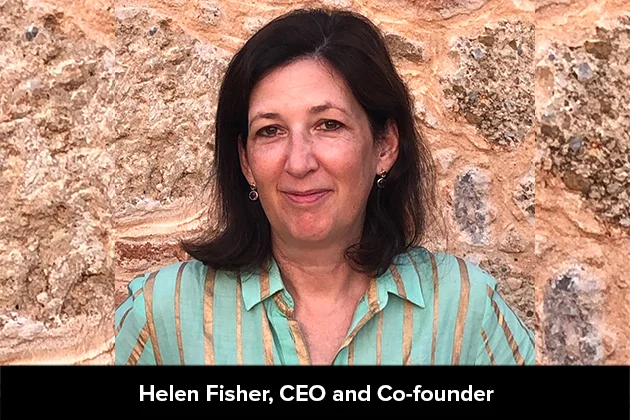Business psychology and development programs have become increasingly important in today’s business environment, as companies realize the value of developing their employees’ skills and knowledge to drive growth and success.
Employees participating in learning and development programs are more engaged, motivated, and committed to their work, resulting in better job satisfaction and higher retention rates. Investing in learning and development programs that incorporate business psychology can help improve employee productivity, morale, and performance. Nicholson McBride Fisher is one such company that is helping organizations with their management development programs. Helen Fisher, CEO, and Co-Founder was with the CEOViews team to share details on how they are working towards this.
The beginning
Nicholson McBride Fisher was the first of its kind in Europe. Over the last 30 years, it has provided services including people development, leadership development, and coaching, in addition to profiling for selection and assessment.
The primary focus of the consultancy is to apply organizational psychology to business challenges, with an emphasis on practical rather than theoretical approaches. To achieve this, the company uses a range of tools, such as workshops, 1:1 or team coaching, 360 feedback, development centers, psychometric tools and assessments, simulations, and more. These tools help to illustrate where the organization currently stands and how it can improve its leadership abilities. Over time, the consultancy has shifted from running local in-person sessions to global virtual programs and a combination of the two. They work with both groups and individuals, depending on the specific needs of the client.
Offerings
Nicholson McBride Fisher helps their clients develop innovative thinking by addressing cultural and behavioral barriers to innovation. They assist in dispelling myths surrounding innovation and provide prompts such as triggers for innovation, idea generation, unconscious problem solving, and pattern breaking to help clients become more innovative. Nicholson McBride Fisher guides their clients on how to nurture innovation in themselves and others.
The company also focuses on leadership and management development, tailoring its approach to meet the specific needs of the organization. This may include helping leaders become more politically savvy or encouraging teams to use the three Es: energy, engagement and exploration, to increase the team’s effectiveness and boost performance.
The company focuses on leadership and management development, tailoring its approach to meet the specific needs of the organization.
Approach
When enhancing a client’s innovative thinking, Nicholson McBride Fisher helps them approach challenges with a fresh perspective. Examples of techniques might include ‘reverse assumptions’ (identifying assumptions around an issue and then reversing these), ‘other worlds’ (getting clients to view issues from the perspective of a famous or fictional character), or using metaphors, stories and images to express the issue at hand.
Sharing an example, Fisher said, “We worked with one team to help them use metaphors and images to think about how they work. They came up with the image of a ship lost in the fog to express how hard it was to work through a difficult project. They then used data analytics to help navigate that project and identify new sales opportunities that they hadn’t seen before. Another team we worked with used reverse assumptions to shape their thinking on which part of their business they were going to focus on in the next financial year.”
By challenging themselves to think differently, they identified new areas of focus that they hadn’t considered before. Overall, their approach is flexible and client-driven, providing clients with tools that help them to think more creatively and challenge their assumptions. They encourage employees to take different perspectives and approach problems from new angles, often lead- ing to innovative solutions.
Client base
Nicholson McBride Fisher serves a wide range of client sectors, catering to any size and scale, but their key clients are global blue-chip corporates. The company has a significant presence in the professional services sector (including global law firms such as Allen & Overy, Clyde & Co, Latham & Watkins, or Mayer Brown, as well as Accenture) and with financial services organizations (examples include the Bank of England, Moody’s and Morgan Stanley).
Nicholson McBride Fisher operates globally, running sessions in person with clients from San Francisco to Hong Kong and everywhere in between, as well as working virtually across all different time zones.
As they work with global organizations, one of the challenges they face is balancing local needs with global ones. They help clients create a common language that can be used across the entire organization, while also catering to the requirements of local teams.
Work culture
At Nicholson McBride Fisher, the work culture is a combination of independent work and group contributions, building on each other’s strengths and different styles of working. The company values fresh ideas and an informal working environment, and the culture revolves around constant learning and client needs. The team listens to clients to gain specific insights into their requirements, while spreading best practices across their sector. Everything they do is linked to client needs, and they encourage clients to measure the effectiveness of their initiatives within their organizations. The team reviews client satisfaction, understanding, degree of learning, and return on investment in monthly account meetings.
Nicholson McBride Fisher helps their clients develop innovative thinking by addressing cultural and behavioral barriers to innovation.
Plans for the future
Nicholson McBride Fisher’s future plans revolve around helping organizations become more successful through their people (rather than just focusing on the well-being of the individual). To achieve this goal, the company plans to stay cutting-edge, expand its offerings, and develop new approaches that meet the evolving needs of the sectors it serves. The focus is on continuous learning with clients and each other while spreading best practice and remaining at the fore- front of this constantly evolving industry.












